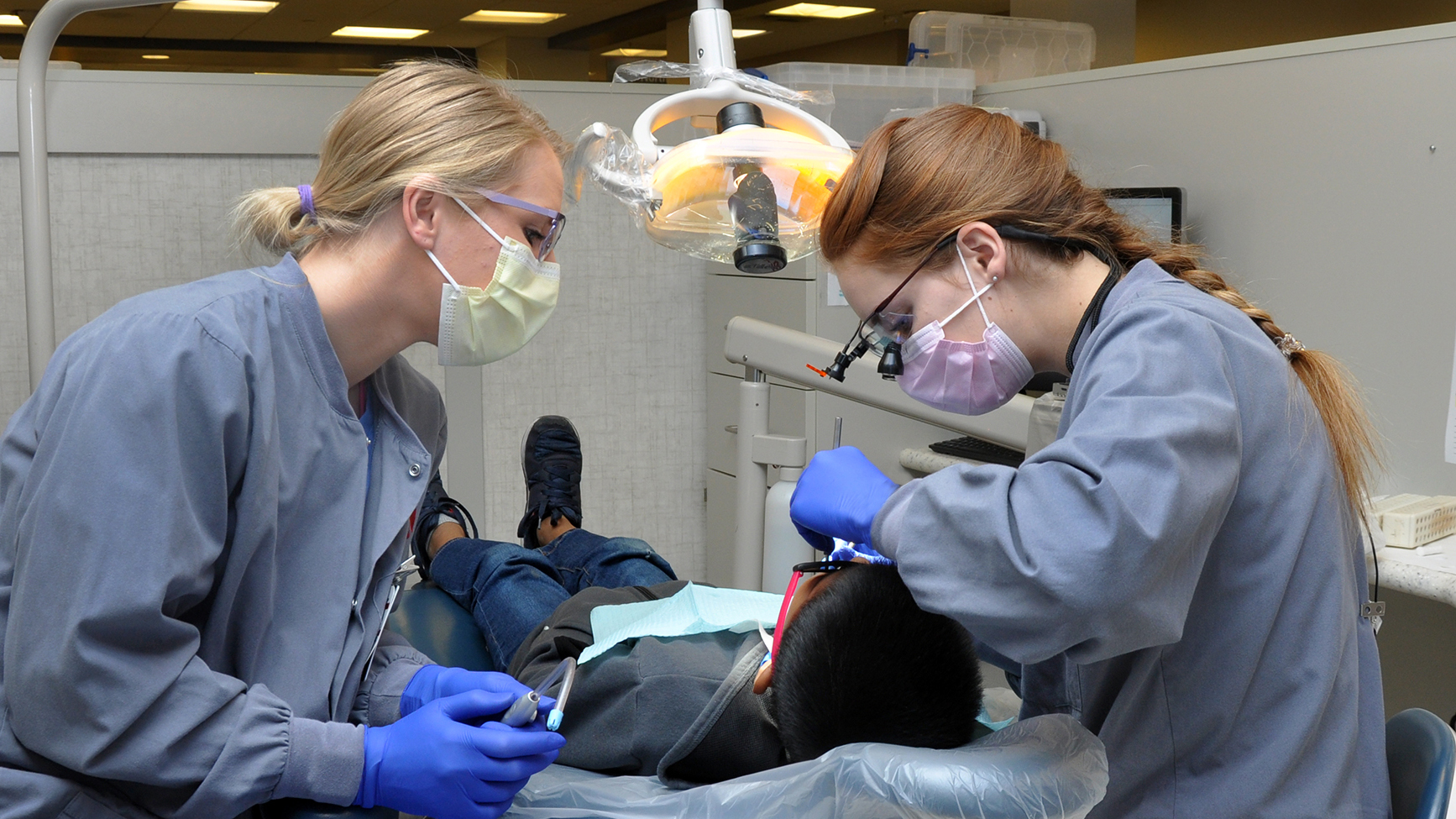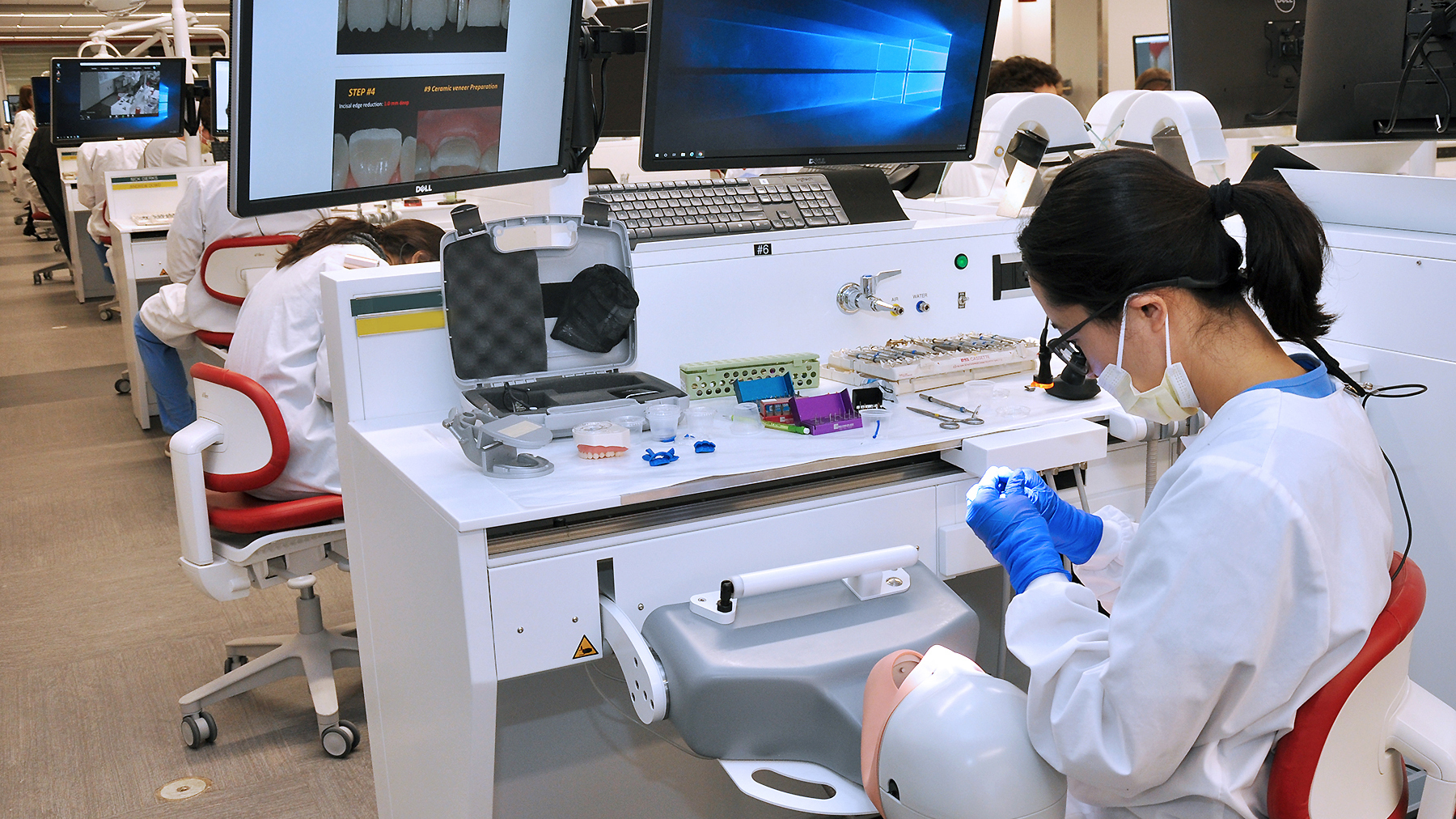
Program Snapshot
- About: The UNMC College of Dentistry has offered fully accredited advanced education programs in orthodontics since 1951. The program leads to a Certificate of Specialization in Orthodontics and Dentofacial Orthopedics and meets the requirements set by the American Board of Orthodontics for eligibility to complete the written exam and take the clinical exam, ultimately working toward becoming a diplomate.
- Length of Program: 30 months
- Application Deadline: August 15
- Start Date: July 1
- Positions Available: 4
- Department: Growth & Development
Location and Rotations
- Main Location: UNMC College of Dentistry, Lincoln
- Children's Nebraska, Omaha
- Durham Outpatient Center, Omaha
Why the UNMC College of Dentistry Orthodontic Residency Program?
The UNMC Orthodontics Residency program is designed for individuals seeking the privilege and joy of enhancing their patients' smiles to improve oral function and increase self-confidence. Orthodontics is a rewarding and challenging career that offers a wealth of benefits, including improving the oral health of people in Nebraska and beyond. Our intricately designed residency program equips residents with the knowledge and confidence to become leading orthodontists.
The program, located at the UNMC College of Dentistry in Lincoln, provides residents with extensive clinical experience working alongside world-class faculty members. Our residents gain rewarding experiences treating a socially and economically diverse patient base.
Residents also receive hands-on experience through rotations at the Durham Outpatient Center and Children’s Nebraska in Omaha, where they gain hospital-based clinical experience treating children and adults with extensive dental restorative needs and complex medical conditions. Additionally, residents engage in cutting-edge research and provide clinical instruction for third- and fourth-year dental students.
Residents receive a program stipend to help offset educational costs, vacation and sick leave, and a flexible benefits package.
Student Story
"I chose UNMC because of the tight-knit community. We received the one-on-one attention that is really important. I learned so much from my fellow residents, as well as from the faculty and the orthodontists in the community who help at the college. They had a lot of different treatment modalities, and I really enjoyed those eye-opening patient care experiences." - Dr. Anna Schoettger, Lincoln
Program Highlights
- Intricately designed, hands-on residency experience.
- One-on-one learning experiences with world-class faculty.
- Supportive resident team.
- Diverse patient base.
- Learn more.
Our Team
Po-Jung Chen, DDS, MDS, MDentSc, Program Director
See current and past residents.
Adjunct Faculty: Dr. John Ficke, Dr. Joseph Hurd, Dr. Robert Schoettger, Dr. Emily Willett
 |
 |
Detailed Program Information |
Admissions Information |
Contact
Julie Buss, Admissions | 402-472-6261 | jbuss@unmc.edu

